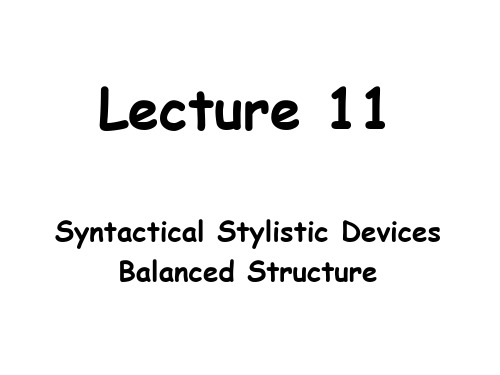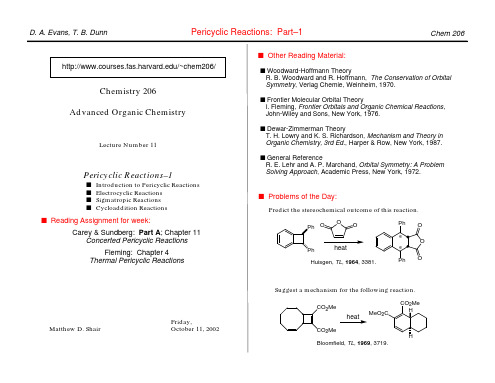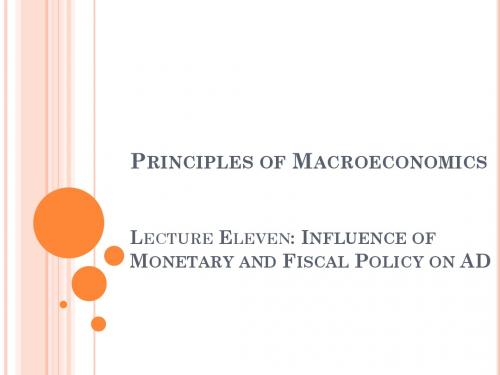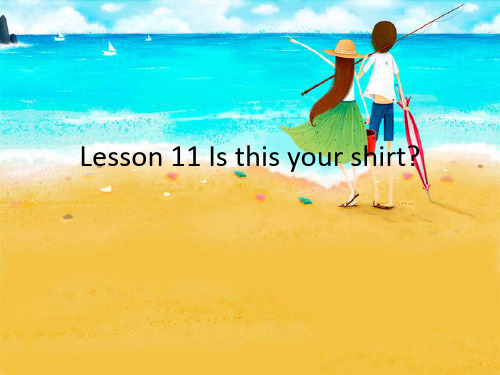Lecture11,12
lecture 11(物称与人称)

the conference room at 2 P· Friday. M. (All faculty and staff are requested to meet in the conference room at 2 P· Friday.) M.
三、物称与人称的翻译策略 (一)有灵主语与无灵主语的转换 汉语句子多为有灵主语;而英语善用无灵主语。 在翻译中,为了符合英汉各自的思维方式,在叙述 方式上必须注意主语的转换。请看下例英汉互译 中的转换: (12)Business took him to the town. 他因事进城去了。 (13)A great elation overcame them. 他们欣喜若狂。
她独处时便感到一种特殊的安宁。
2.非人称代词“it”和there be句型的使用。
王力先生曾对英语形式主语做过精辟的论述:就 句子结构而言,西洋语言(英语)是法治的,中国语 言是人治的,法治的不管主语用得着用不着,总要 呆板地求句子形式的一律;人治的用得着就用,用 不着的就不用,只要能使对话人听懂说话人的意 思,就算了。这也为英汉互译中“it”形式主语和 零位主语的处理提供了依据。
与此形成对比的是,中国人相信“天人合一 (oneness between man and nature)”。 而且, 这种“天人合一”儒家的代表人物孟子认为“万 物皆备于我” 。因此,从“我”就可以掌握“万 物”的本质,而“万物”的特征也显现在“我” 之中。这即是中国文化传统意义上的人本文化。 这种人本文化的长期积淀,形成了汉民族主体型 的思维方式,即以人文为中心来观察、分析、推 理和研究事物的思维
(英文中出现了七个动词被动式,而中文里却 一个“被”字也没有,翻译时还添加了多个“我 们”“你们”等人称词。英汉语民族思维习惯之
lecture的意思用法大全

lecture的意思用法大全lecture有演讲,训斥,教训的意思。
那你们想知道lecture的用法吗?今天给大家带来了lecture的用法,希望能够帮助到大家,一起来学习吧。
lecture的意思n. 演讲,训斥,教训vi. 作演讲vt. 给…作演讲,教训(通常是长篇大论的)变形:过去式: lectured; 现在分词:lecturing; 过去分词:lectured;lecture用法lecture可以用作名词lecture主要指教育性或学术性“演讲”,引申可指“冗长的训斥或谴责”。
lecture是可数名词,其后接介词on或about ,意为“关于…的演讲”“就…做演讲”“因…训斥或谴责某人”。
lecture作“讲演,讲课”解时,是不及物动词。
说“讲授某课程”时常与介词on连用,说“在某地讲演”时常与介词at〔in〕连用。
lecture用作名词的用法例句She ran over her notes before giving the lecture.她讲课前把讲稿匆匆看了一遍。
His lecture covered various aspects of language.他的讲课涉及到语言诸方面的问题。
They could not follow the lecture.他们听不懂这次演讲。
lecture可以用作动词lecture作“讲演,讲课”解时,是不及物动词。
说“讲授某课程”时常与介词on连用,说“在某地讲演”时常与介词at〔in〕连用。
lecture也可用作及物动词,意思是“向…讲演,给…讲课”,接名词或代词作宾语。
lecture还可作“责备”“教训”“训斥”解,用作及物动词,接名词或代词作宾语。
“因…而受到训斥”可说lecture sb for n./v -ing。
lecture用作动词的用法例句It was a shame for me to be lectured in front of the whole class.当着整个班级的面被训斥了一顿,真让我感到羞辱。
Lecture 11英文修辞学课件排比、重复、对比

A. repetition of the words in reverse order One should eat to live, not to live to eat. For my thoughts are not your thoughts, neither are your ways my ways. Live Simply---So That Others May Simply Live (newspaper heading)
• Injustice anywhere is a threat to justice everywhere.
a series of words 单词平行排列 Women were running out to the line of march, crying and laughing and kissing the men goodbye. The mail-coach lumbered, jolted, rattled and bumped upon its tedious way. a group of phrases Studies serve for delight, for ornament, and for ability.
Einstein was a fair amateur violinist, a great mathematician, and a deeply philosophical man.
a row of clauses …they vanish from a world where they were of no consequence; where they achieved nothing; where they were a mistake and failure and a foolishness; where they have left no sign that they had existed. a successive of sentences We shall fight him(Hitler) by land; we shall fight him by sea; we shall fight him in the air, until, with God’s help, we have rid the earth of his shadow and liberated its peoples from his yoke.
哈佛大学高等有机化学讲义Lecture11

(2) CYCLOADDITION REACTIONS/CYCLOREVERSION REACTIONS:
A cycloaddition reaction is the union of two smaller, independent pi systems. Sigma bonds are created at the expense of pi bonds. A cycloaddition can occur in an intramolecular sense, but it must be between two independent pi systems. Cycloaddition reactions are referred to as [m + n] additions when a system of m conjugated atoms combines with a system of n conjugated atoms. A cycloreversion is simply the reverse of a cycloaddition. Examples:
s Woodward-Hoffmann Theory R. B. Woodward and R. Hoffmann, The Conservation of Orbital Symmetry, Verlag Chemie, Weinheim, 1970. s Frontier Molecular Orbital Theory I. Fleming, Frontier Orbitals and Organic Chemical Reactions, John-Wiley and Sons, New York, 1976. s Dewar-Zimmerman Theory T. H. Lowry and K. S. Richardson, Mechanism and Theory in Organic Chemistry, 3rd Ed., Harper & Row, New York, 1987. s General Reference R. E. Lehr and A. P. Marchand, Orbital Symmetry: A Problem Solving Approach, Academic Press, New York, 1972.
Lecture11

HOW R IS DETERMINED
Interest rate r1 Eq’m interest rate MS MS curve is vertical: Changes in r do not affect MS, which is fixed by the Fed. MD curve is downward sloping: A fall in r increases money demand.
ANSWER
B. Suppose P rises, but Y and r are unchanged. What
happens to money demand? If Y is unchanged, people will want to buy the same amount of goods & services. Since P is higher, they will need more money to do so. Hence, an increase in P causes an increase in money demand, other things equal.
FISCAL POLICY AND AGGREGATE DEMAND
Fiscal policy: the setting of the level of government spending and taxation by government policymakers Expansionary fiscal policy
More precisely, the federal funds rate – which banks charge each other on short-term loans
Lecture 11

Saussure’s ideas on language
• Saussure believed that language is a system of signs. To communicate ideas, they must be part of a system of conventions, part of a system of signs. This sign is the union of a form and an idea, which Saussure called the signifier and the signified. Some important distinctions Saussure made in linguistics include langue vs. parole, syntagmatic vs. paradigmatic, and synchronic vs. diachronic.
Important concepts
• Theme – the point of departure of a sentence, which is equally present to the speaker and hearer; • Rheme -- the goal of discourse which presents the very information that is to be imparted to the hearer; • Known/ given information -- information that is not new to the reader or hearer; • New information -- what is to be transmitted to the reader or hearer.
新概念英语Lesson11-12(共21页)课件

开口双元音
• • Ear: ear dear hear clear beard • Ea: idea theatre • Ere: here • Eer: beer queer engineer • The engineer’s idea is very queer. • Dear, come here and let’s drink beer. • I can’t hear the actors clearly in the theatre. • My house is near the theatre.
review
I是主语,位于句首,如I love you. My是形容词性物主代词,用于名词前,如It is my book. Me是宾格,位于动词后,如Do you love me? Mine是名词性物主代词,相当于my+名词的意义 如:It is mine=It is my book.
• 1. She is a student, _____ name is Julia. 2. Could you help _____ with _______ English, please. 3. A friend of _____ came here yesterday.
对比下列读音
hare dare bare air chair
• Ur: tour sure tourist cure pure • I’m sure the tourist will like it. • The tourist is drinking pure water.
澳大利亚商法Lecture 11 (Wk 12) - Employment Law

Control Test: Does the employer have the legal
right to control how the employee works?
Zuijs v Wirth Bros (1955)
6
Determining the Employment Relationship
2
The Commonwealth’s Industrial Powers - Constitution
Originally, the Commonwealth‟s industrial powers were constrained by section 51(xxxv) of the Constitution – Industrial Relations Power (and minor use of powers such as the External Affairs Power) But, as a result of the WorkChoices and Fair Work Australia Amendments to the Workplace Relations Act 1996 (Cth) and the consequential High Court decision, the Commonwealth‟s industrial powers have been broadened by the use of Section 51(xx) of the Constitution – the Corporations Power It is important to distinguish between Federal and State legislation because in the event of any clash, Commonwealth law prevails to the extent of any inconsistency – Section 109 Constitution See NSW v Commonwealth [2006] (Text 792)
- 1、下载文档前请自行甄别文档内容的完整性,平台不提供额外的编辑、内容补充、找答案等附加服务。
- 2、"仅部分预览"的文档,不可在线预览部分如存在完整性等问题,可反馈申请退款(可完整预览的文档不适用该条件!)。
- 3、如文档侵犯您的权益,请联系客服反馈,我们会尽快为您处理(人工客服工作时间:9:00-18:30)。
1 What were you doing yesterday at six p.m.? 2 From 2006 to 2009, he was teaching at Harvard. 3 The students were still talking when the teacher stepped in. 4 My younger brother was always losing money. 5 They were leaving a few days later. 6 I was hoping you could lend me some money. I am hoping you can lend me some money. I hoped you could lend me some money I hope you can lend me some money.
1 I teach English at the Teachers’ college, but I’m now teaching in a middle school. 2 He works in a foreign company. He is working in a foreign company these days. 3 She is continually finding falult with me. 4 She complains about the landlord. She is constantly complaining about the landlord.
Байду номын сангаас
1 He has turned off the light. 2 He has lived here since 2006. 3 I have been writing letters for an hour. 4 I have benn sitting in the garden. 5 I have been living here for ten years. 6 I have lived here for ten years. 7 Who’s been eating my cookies? 8 Who’s eaten my cookies?
(3) to denote a future happening according to a definite plan or arrangement (4) to denote other meanings
(4) to make polite requests and express hypothetical meanings (5) contrast between past progressive and simple past
Lecture 11 & Lecture 12
Tense and Aspect
1. Uses of simple present (1) Timeless present eg. A rolling stone gathers no moss. (2) Habitual present eg. Father doesn’t smoke.
1 It’s time we were leaving. present It’s time we went. 2 I wish they were not talking so loudly. 3 I’d rather you were going at once. 4 If they were leaving tonight, I’d like to go future with them.
4. Uses of past progressive (1) to denote an action in progress at a definite point or period of past time (2) to denote a past habitual action (3) to denote futurity in the past
1 She is leaving for Thailand in a few days. 2 I have no idea what you are talking about. 3 I’m wondering if I may have a word with you. 4 I wonder if I may have a word with you.
3. Uses of present progressive
(1) to denote an action in progress at the moment of speaking (2) to denote an action in progress at a period of time including the present
1 I was reading a novel yesterday. 2 I read a novel yesterday. 3 It snowed all night. 4 It was snowing all night. 5 When we arrived, she was making some fresh coffee. 6 When we arrived, she made some fresh coffee.
(3) Momentary and instantaneous present eg. What do you think, Jane? (4) Referring to the future eg. I hope you have a good time. (5) Referring to the past eg. I hear poor old Smith has lost her son.
(1) past perfective (2) past perfective progressive (3) past perfective in sentence with when-/before-/after-/untilclauses (4) imaginary use of past perfective If John had walked faster, everything would have been all right. If Johan walked faster, everything would be all right.
幻灯片 15
7. More on the use of perfective aspect
(1) perfective aspect and since- clause (2) perfective aspect vs. have got / have got to (3) perfective aspect in “It is the first time + that- clause
Not finished finished
duration
同时性
先后性
5. Uses of present perfective (progressive)
(1) present perfective (2) present perfective progressive
6. Uses of past perfective (progressive)
2. Uses of simple past (1) past event and past habit eg. He left ten minutes ago. (2) Attitudinal and hypothetical past eg. A: Did you want me? B: Yes, I wondered if you could give me some help.
finished Not finished
Assignment
Exercise in the Textbook
before-/after-/until-
before-/after-/until• When I reached the station, the train had already left. • I reached the station___the train had left • I didn’t reach the station__the train had left. • The train had left__I reached the station.
